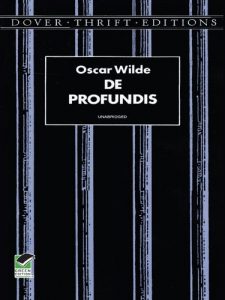I 99eBooks è una directory di eBook. Cerchiamo e classificato intorno alle eBooks Web per te!
Tutti i diritti riservati. I libri e libri elettronici sono di proprietà dei rispettivi proprietari.
De Profundis (Dover Thrift Editions)
Renowned as a wit, poet, dramatist and one of the great conversationalists of his age, Oscar Wilde (1854–1900) nevertheless fell victim to the forces of repression and prudery in late Victorian England. As a result of his affair with Lord Alfred Douglas, Wilde was found guilty of homosexual offenses and jailed for two years.
While in prison, he wrote De Profundis, a long and bitter letter of recrimination addressed to Douglas. In it, he accuses Douglas of shallowness, selfishness, greed, gross interference with his [Wilde's] artistic efforts and other faults and wrongdoing. Nevertheless, it is clear from this letter that Wilde deeply loved Douglas and still harbored strong feelings for him, in spite of Douglas' role in Wilde's downfall. While the letter is a touching cri de coeur that offers fascinating insights into Wilde's life in prison and the background and psychology of a notorious affair, its eloquence, passion, and literary excellence raise it above the level of the purely personal. Instead, it becomes a universal statement about love, injustice and the pain of living in the world.
While in prison, he wrote De Profundis, a long and bitter letter of recrimination addressed to Douglas. In it, he accuses Douglas of shallowness, selfishness, greed, gross interference with his [Wilde's] artistic efforts and other faults and wrongdoing. Nevertheless, it is clear from this letter that Wilde deeply loved Douglas and still harbored strong feelings for him, in spite of Douglas' role in Wilde's downfall. While the letter is a touching cri de coeur that offers fascinating insights into Wilde's life in prison and the background and psychology of a notorious affair, its eloquence, passion, and literary excellence raise it above the level of the purely personal. Instead, it becomes a universal statement about love, injustice and the pain of living in the world.


















